Agri-Technology
Reducing Post-Harvest Losses in Uttar Pradesh: Inside Marico Innovation Foundation’s Agri Pilot with Samunnati Foundation
How MIF, Samunnati Foundation and agri-startups are piloting solutions in Mirzapur and Varanasi
Why sustainable innovation must go beyond compliance—and how to make it commercially viable.
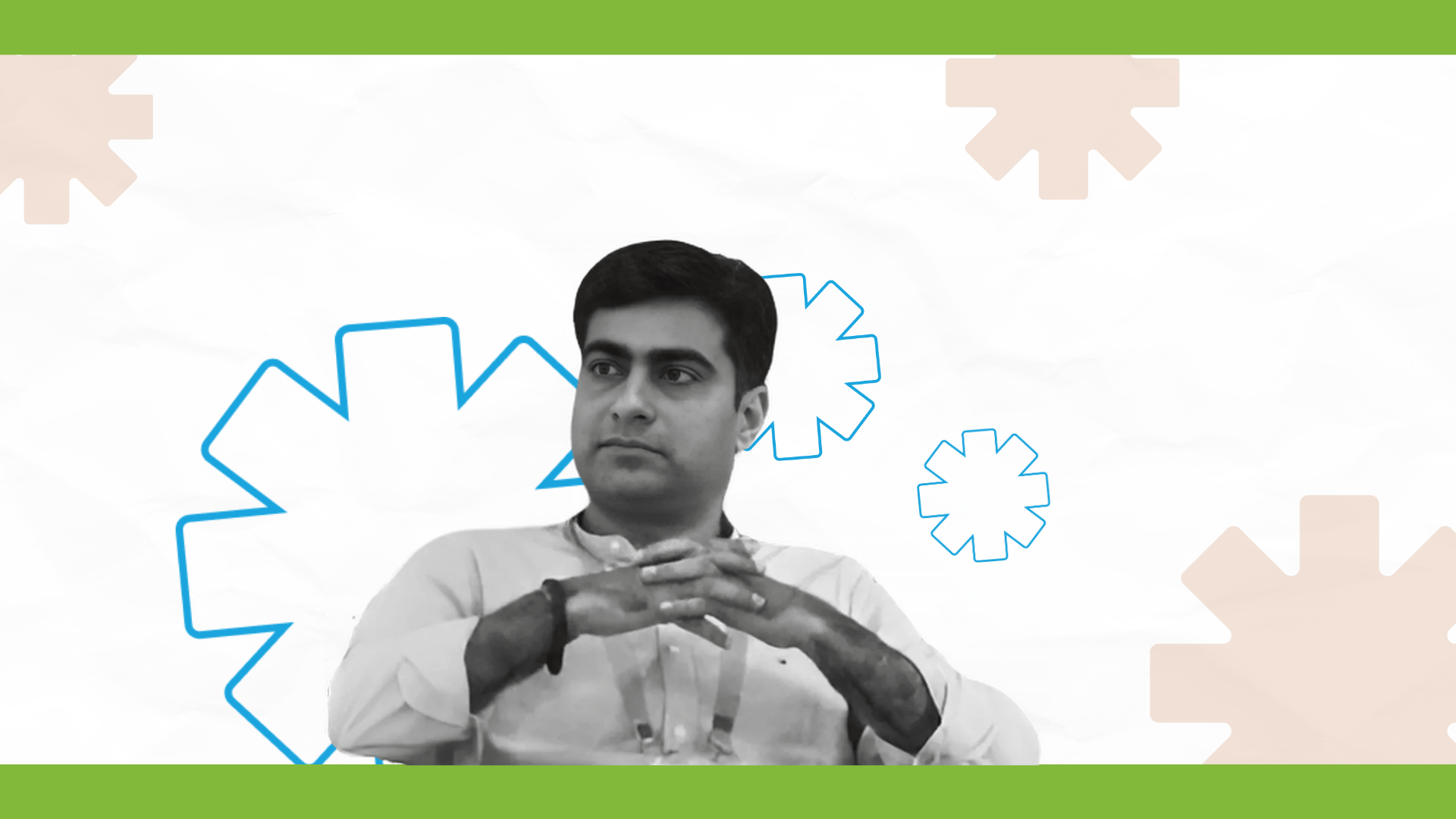
As the world moves toward more sustainable futures, innovation must evolve to solve complex challenges across sectors. We spoke with Mukesh Malik, a seasoned entrepreneur and business consultant with over 20+ years of experience, to share his thoughts on innovating, failing, and innovating again, in the sustainability space.
Mukesh Malik is the CEO of projectGK, a startup that helps organisations transform their businesses through stronger process frameworks, people requirements, and technological innovations such as SaaS, mobile, IoT, AI, and more. He is also one of the Agri-Technology mentors at Scale-Up, MIF’s no-equity accelerator for innovative startups addressing India’s most urgent challenges.
Something that fundamentally changes the business, without compromising its objectives, such as product quality, customer experience, and market development. Right disruption not only overcomes current limitations but also presents opportunities for building new skill sets, use cases, and markets.
On average, I have been shelving two ideas every year for the last 6-7 years. One such idea I remember pre-dates smartphones and the internet-era. I built a voice-based interviewing tool, which could have helped people with audio CVs and preliminary hiring interviews. But I could not build the right distribution & tech infra development, so I shelved it almost 15 years ago.
In another instance, as a lead on an insurance project, I created India’s first biometric insurance card about 17 years ago. This garnered recognition in the industry for its diverse use cases but could not stand the business feasibility test. It was eventually dropped.
The trick is to not get attached to the solution/innovation, and to remain focused on solving the problem or meeting the objectives. It also helps to widen the horizon beyond your innovation to assess the readiness of the ecosystem or industry absorbing the innovation. Finally, any innovation we unsuccessfully create always stays with us in the form of learnings that can get embedded in future innovations.
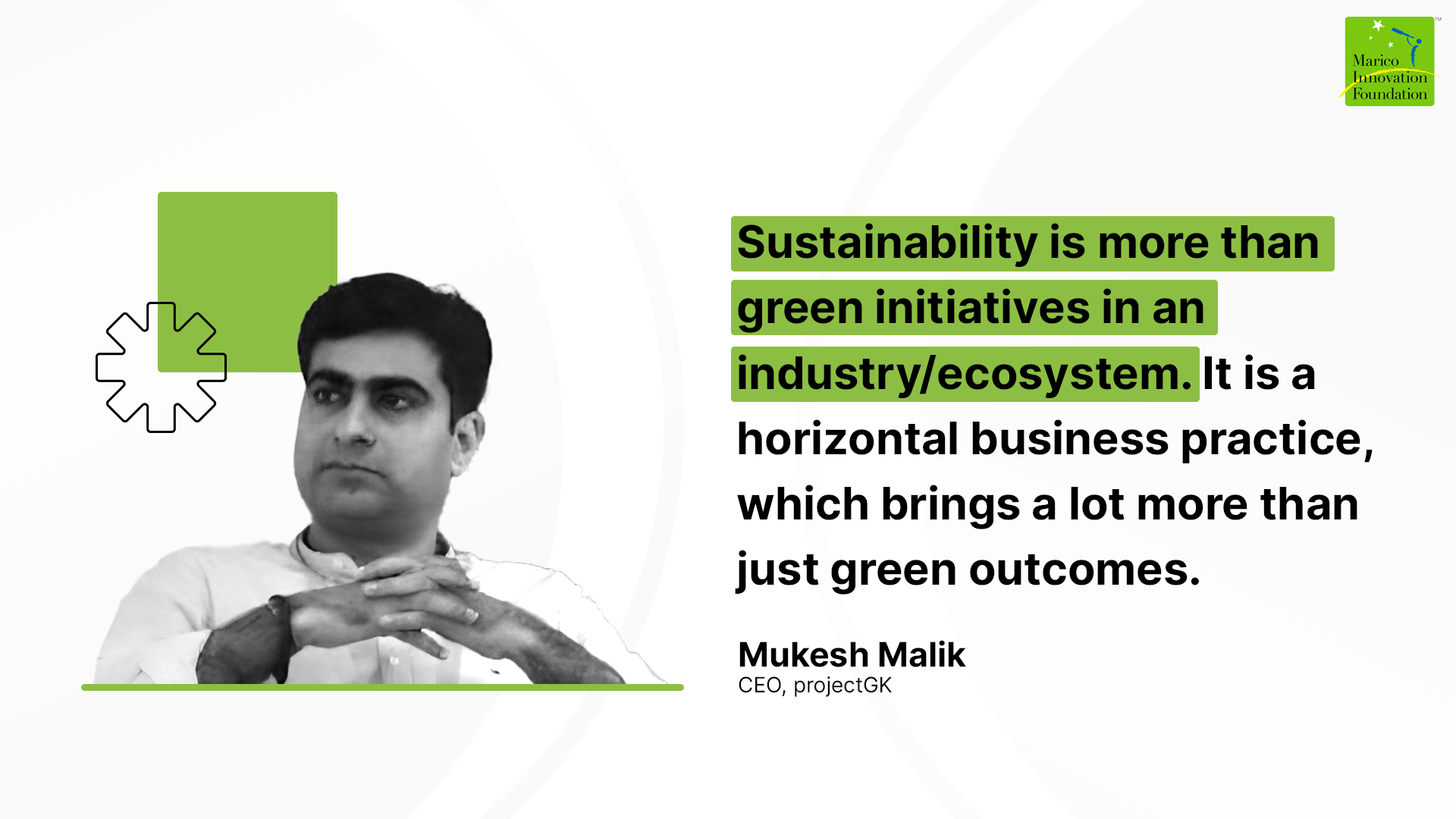
Idea evaluations should be done both internally and through open markets. The cycle begins from proof of concept—not just for the tech part, but also the business model around it—until there is a natural market adoption of the idea. It can start small, but the scalability should be tested in at least three different conditions (geography, markets, pricing, etc.).
Sustainability is more than green initiatives in an industry/ecosystem. It is a horizontal business practice, which brings a lot more than just green outcomes.
Innovations in the sustainability space have a long activation cycle, so it’s important to build them for long-term relevance. The deployment cycle should also align with the ecosystem’s readiness levels. Finally, while sustainability is aligned with social and environmental impact, entrepreneurs should always consider commercial feasibility through innovative and engaging business models.
The innovation should be integrated into the business to enhance value beyond compliance. Sustainability isn’t a siloed vertical; it requires horizontal implementation. For example, improving electricity efficiency isn’t just about changing the source but also involves re-engineering, measurement systems, and process changes.
To succeed, innovators must also embed the solution economy into their innovations. This includes financing, contributing to the top line through recycling, efficiencies, and embedded value. Examples include EV subsidies and infrastructure support, solar farms, e-waste recycling/upcycling, and carbon credit generation.
——————————————————————————————————–
Subscribe to InnoWin, Marico Innovation Foundation’s newsletter and get more insights like these—deep and actionable from entrepreneurs, investors, and change-makers.
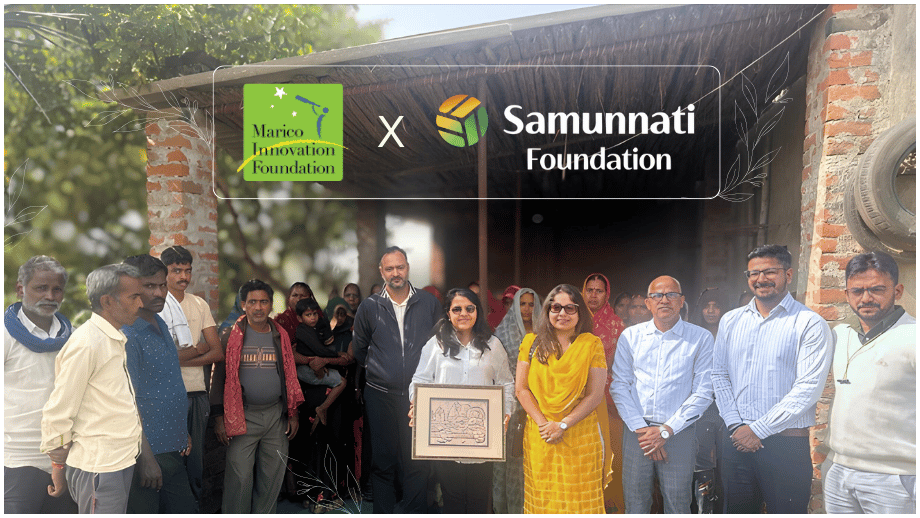
How MIF, Samunnati Foundation and agri-startups are piloting solutions in Mirzapur and Varanasi
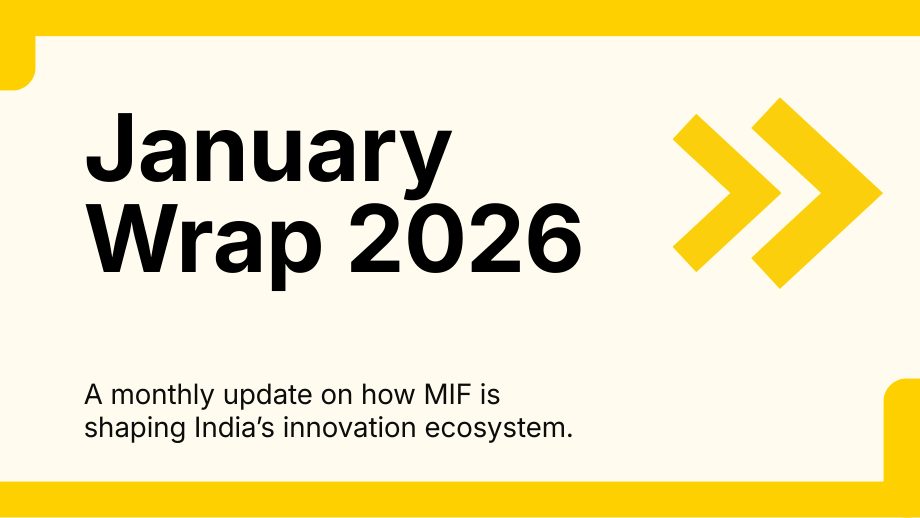
Milestones, lessons, and the work already underway at MIF
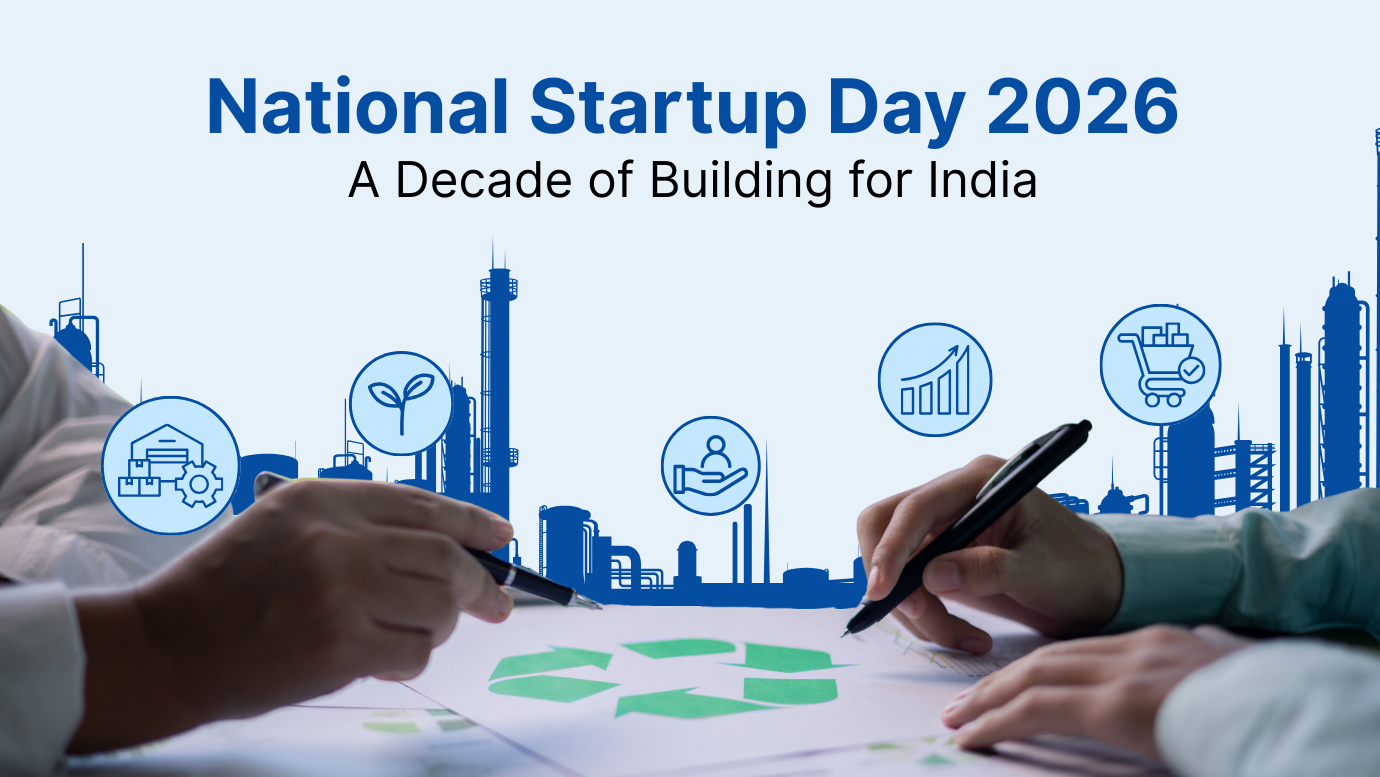
Marico and Marico Innovation Foundation (MIF) reflect on ten years of Startup India and the diversity shaping India’s next phase of innovations.

Get insights from entrepreneurs, investors, and change-makers on innovation,
success and what it takes to get there.
